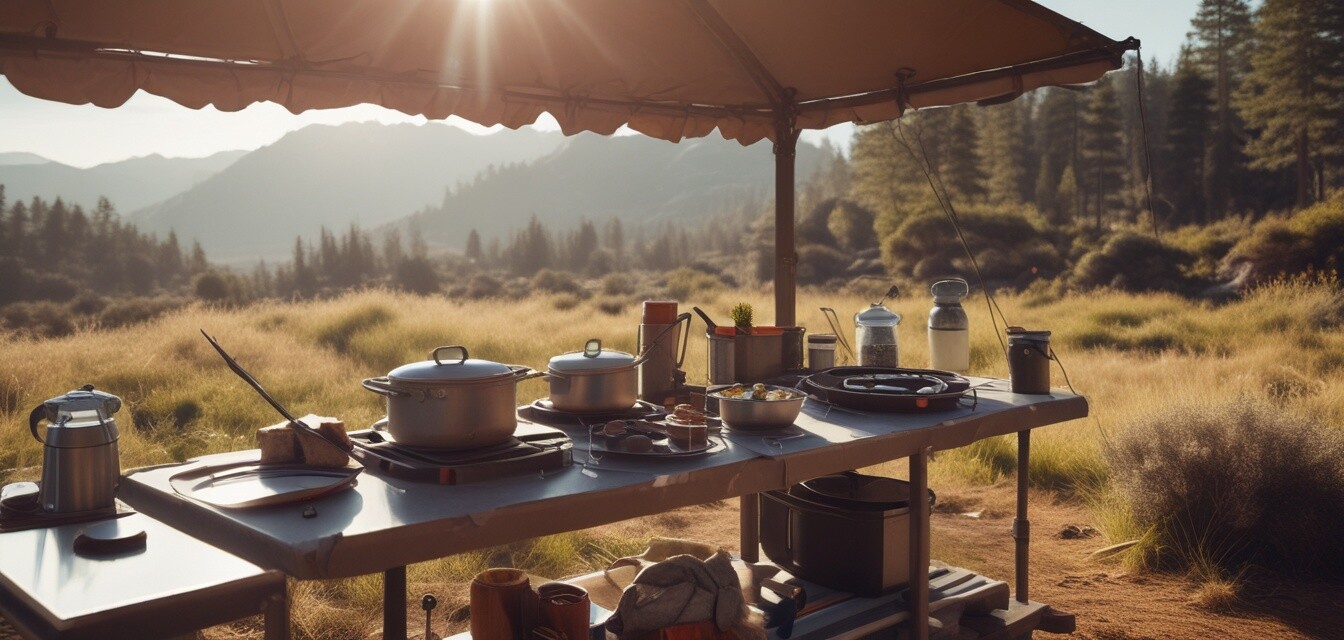
How to Create a Solar-Powered Camp Kitchen
Key Takeaways
- Plan your solar setup to maximize energy efficiency.
- Choose energy-efficient appliances and cooking tools.
- Understand the placement of solar panels for optimal sunlight.
- Incorporate sustainable practices in your camp kitchen.
- Utilize proper storage and organization to enhance functionality.
Creating a solar-powered camp kitchen is an excellent way to enjoy the great outdoors while minimizing your impact on the environment. With just a bit of preparation and the right equipment, you can set up an efficient cooking area that harnesses the sun's energy. This article will guide you through the steps to establish a solar-powered camp kitchen that meets your cooking needs while you explore nature.
Benefits of a solar-powered camp kitchen
Setting up a solar-powered camp kitchen comes with numerous benefits:
- Sustainability: Using solar energy reduces your carbon footprint.
- Energy Independence: You don't have to rely on disposable fuel sources.
- Convenience: Cook meals without the hassle of traditional fuel or wood.
- Versatility: Solar setups can be adjusted for various camping situations.
Essential components for a solar-powered camp kitchen
To create your solar-powered camp kitchen, you'll need to gather the following components:
| Component | Description |
|---|---|
| Solar Panels | Capture sunlight and convert it into electrical energy. |
| Battery Storage | Stores energy for use during cloudy days or nighttime. |
| Inverter | Converts stored energy from DC to AC for most appliances. |
| Energy-Efficient Appliances | Includes solar cookers, portable ovens, and energy-efficient blenders. |
| Cooking Tools | Pots, pans, and utensils designed for camping use. |
Setting up your solar-powered camp kitchen
Follow these steps to effectively set up your solar-powered camp kitchen:
- Assess your energy needs: Determine how much power you need for cooking and what appliances you will use. Start with essential items to keep the setup simple.
- Choose your solar panels: Based on your energy requirements, select solar panels that are easy to carry and set up. Lightweight panels with a higher wattage rating are ideal for camping.
- Install battery storage: Secure a battery bank where the solar energy will be stored. Ensure it's sheltered from the elements for better protection and longevity.
- Connect an inverter: Install an inverter to convert the energy stored in the battery for usage with standard appliances.
- Organize your cooking area: Create a designated cooking space with sufficient sunlight exposure to optimize solar efficiency.
- Test your setup: Before relying on your camp kitchen, test all components to ensure they work together efficiently.
Solar cooking tips to consider
Here are some additional tips to optimize your solar cooking experience:
- Position panels wisely: Check the sun’s path during the day to adjust the angle of the solar panels for maximum exposure.
- Use dark cookware: Dark pots and pans absorb heat better, making your cooking more efficient.
- Plan simple meals: Opt for easy-to-prepare meals that require minimal cooking time and energy.
- Incorporate raw foods: Make the most of fresh fruits and vegetables that don't require cooking.
Maintaining your solar-powered kitchen
Proper maintenance is crucial for ensuring your solar-powered kitchen functions optimally:
- Keep equipment clean: Regularly clean your solar panels and appliances to maintain efficiency.
- Check connections: Periodically inspect all connections to your solar setup to prevent power loss.
- Store equipment properly: When not in use, protect your solar panels and appliances from the elements.
- Monitor battery life: Keep an eye on battery levels and charge them as needed to ensure they last throughout your trip.
Pros
- Environmentally friendly and sustainable energy source.
- Cost-effective in the long run as you'll save on fuel.
- Great for off-grid adventures and extended trips.
Cons
- Initial setup can be resource intensive.
- Dependent on weather conditions for energy production.
Conclusion
Setting up a solar-powered camp kitchen allows you to enjoy the great outdoors while minimizing your environmental footprint. With the right planning and equipment, you can create a sustainable cooking area that meets your needs. Remember to consider energy efficiency, choose the proper equipment, and maintain your setup to enjoy a successful camping experience. For more resources, check out our guides on buying the right camping equipment and solar camping tents. Happy camping!